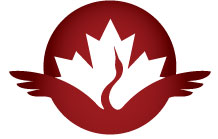There is a simple question I am often asked when speaking about humanitarian assistance: What works best with the DPRK?
Simple questions don’t always result in simple answers, and when it comes to the DPRK, simple answers don’t exist. Actually, even simple questions turn out to be more complex when applied to the DPRK: What do we mean by the words “works best”? Works best for whom? For what purpose? Under what circumstances? During what time period? And who or what determines what works best?
Works best for whom?
For the donors? For the implementing agencies? For the recipient country? For the intended beneficiaries?
What works best for international agencies may not work best for Korean organizations. What works best for resident NGOs may not work for non-resident NGOs. What works best for European NGOs under the umbrella of the EU or EC or ECHO may not work for American NGOs distributing the donations of US-AID. What works best for the Eugene Bell Foundation may not work at all for Doctors Without Borders (MSF). What works best for the elite in Pyongyang may not work well for the families of unemployed workers in Chongjin.
Works best for what purpose?
What may work best in the short term may not work best with a longer-term perspective in mind. When evaluating assistance programme models and strategies, we should consider what long-term objectives we are seeking to achieve:
- When we intervene in the DPRK, is our only goal to feed the hungry?
- Or are we also concerned about peace and security in the region? Read the rest of this entry »


 The representatives of organizations still actively engaged in assistance to the people of North Korea harbored no illusions that the current transition in the DPRK leadership would melt away the difficulties involved in the provision of humanitarian aid. There was, however, a consensus that whatever the international climate may be at any particular time, engagement is a key to projecting Canadian values into the situation, whether by the government or by civil society. When Canadian government policy is engagement, this tends to support the work of Canadian NGOs, who in turn embody the best of Canada’s reputation for peace and human security. When government policy is non-engagement, the activities of NGOs nonetheless continue to further Canadian values, thus laying the groundwork for future engagement policies.
The representatives of organizations still actively engaged in assistance to the people of North Korea harbored no illusions that the current transition in the DPRK leadership would melt away the difficulties involved in the provision of humanitarian aid. There was, however, a consensus that whatever the international climate may be at any particular time, engagement is a key to projecting Canadian values into the situation, whether by the government or by civil society. When Canadian government policy is engagement, this tends to support the work of Canadian NGOs, who in turn embody the best of Canada’s reputation for peace and human security. When government policy is non-engagement, the activities of NGOs nonetheless continue to further Canadian values, thus laying the groundwork for future engagement policies.


 Feeding the Famine: The European Union’s Response to North Korea
Feeding the Famine: The European Union’s Response to North Korea

 [The World Council of Churches is an ecumenical fellowship of churches founded in 1948. Today the WCC brings together 349 Protestant, Orthodox, Anglican and other churches representing more than 560 million Christians in over 110 countries, and works cooperatively with the Roman Catholic Church. This post is taken from a WCC press release dated 27 June 2011. –CanKor.]
[The World Council of Churches is an ecumenical fellowship of churches founded in 1948. Today the WCC brings together 349 Protestant, Orthodox, Anglican and other churches representing more than 560 million Christians in over 110 countries, and works cooperatively with the Roman Catholic Church. This post is taken from a WCC press release dated 27 June 2011. –CanKor.]
